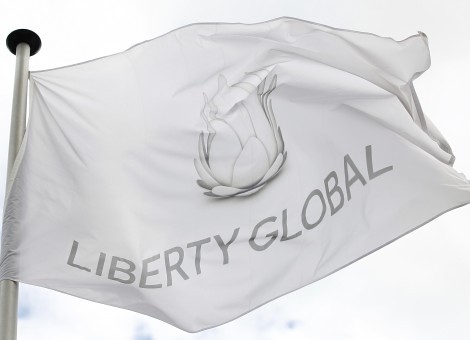
After more than 40 years of operation, DTVE is closing its doors and our website will no longer be updated daily. Thank you for all of your support.
What is Liberty Global’s next move?
 Liberty Global has an impressive portfolio of ventures it runs across multiple territories. But this week the telecommunications company has featured in the news with a range of stories bringing into question what the future holds for the company’s operated brands and joint ventures. To start it off, it was reported that the UK production giant All3Media which is jointly-owned by owners Warner Bros. Disovery (WBD) and Liberty Global is reportedly going on sale for around £1 billion (US$1.26 billion).
Liberty Global has an impressive portfolio of ventures it runs across multiple territories. But this week the telecommunications company has featured in the news with a range of stories bringing into question what the future holds for the company’s operated brands and joint ventures. To start it off, it was reported that the UK production giant All3Media which is jointly-owned by owners Warner Bros. Disovery (WBD) and Liberty Global is reportedly going on sale for around £1 billion (US$1.26 billion).
WBD and Liberty Global, which each have a 50% stake in the production house are said to be looking at a range of options, including selling their stakes to a third party or buying out the other’s half of the business, according to UK publication The Daily Telegraph.
All3Media, which is behind BBC1 competition series The Traitors and Three Identical Strangers, is home to more than 50 production companies. With operations across the US, Germany, the Netherlands, Belgium, New Zealand and the UK, the production hub was acquired by the then Discovery and Liberty Global in 2014 in a deal valued at around US$930 million.
During Liberty Global’s first quarter earning call, Fries said: “The goal isn’t necessarily to have a bigger ventures portfolio every year. The goal is to generate above-market returns on strategic investments in tech, media and infrastructure that either benefit our operating businesses or take advantage of our unique track record of buying, building and profiting from investments in these areas over the last 15 years.”
He added: “It’s also important to point out that the ventures portfolio does not include certain assets that reside inside of our opcos that could be and in some cases will be sources of cash to Liberty Global.” This week also saw the chairman of Telefónica, José María Álvarez-Pallete appointed chairman of the board of directors of the company’s UK joint venture with Liberty Global, Virgin Media O2.
He replaces Liberty Global CEO Mike Fries, following an agreement between Telefónica and Liberty Global which set out that the chairmanship of the board will rotate every two years between the two companies. Fries will remain a member of the VMO2 board.
While the change in chairman is inscribed in the JV agreement, there is continuing speculation about the future of the jointly owned operating companies in the UK and the Netherlands, where VodafoneZiggo is a JV with Vodafone.
Speaking to analysts on Liberty’s recent Q1 earnings call, CEO Mike Fries indicated that he was open-minded about the future structure of these companies. However, any flotation would requre the agreement of both joint venture partners in both cases.
“You could look at any one of these businesses as a potential candidate for listing,” said Fries. He said Liberty had done a lot of work around this, but noted that Liberty had partners both in the UK and the Netherlands who would have to be consulted. He said Liberty was “always on the lookout for the most impactful way to create value for shareholders”. Nevertheless, Telenet, ofwhich Liberty Global is the controlling shareholder,seems to be of value to the company as a wholly-owned entity, with a plan to acquire the free-floating shares and delist.
The Belgian cable operator this week also received approval from The European Commission for the planned partnership Fluvius to build out fibre in Flanders and Brussels.
Telenet and Fluvius announced their agreement to jointly build out the fibre network in July last year. The company said it marked an important step to finalise the agreement and allows the pair’s new infrastructure company, currently under the working name NetCo, to effectively launch early in July.
The new company will deploy a hybrid network strategy to enable speeds of up to 10 Gbps for all its customers.
Fries pointed to the proposed purchase of the minority stake in Telenet as one of key elements in the company’s capital structure and capital allocation model.
Speaking on the launch of NetCo he said, “It’s going to be really a great model for us or a great test case for us in terms of how these NetCo-ServCo structures operate and how we can almost take an incumbency position in wholesale and drive real value creation. I think it’s easier for us to think about value creation opportunities, whatever those might look like as a private company for the foreseeable future.”
A question mark hangs over Liberty Global on what the company’s next move is and how its business model will evolvein the foreseeable future.
This article has been amended to clarify that flotation of Liberty Global’s JVs with Telefónica and Vodafone would require the agreement of both parties in both cases.


